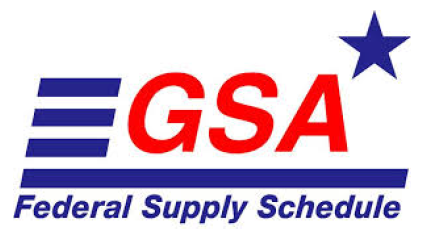When it comes to supplying America’s healthcare system, McKesson Corporation plays in the big leagues. As one of the largest pharmaceutical and medical supply distributors in the U.S., McKesson holds massive contracts with the federal government—helping deliver everything from PPE and vaccines to essential medications.
But how does a company manage such huge responsibilities, and what can smaller businesses learn from its success?
This post will break down McKesson’s approach to handling federal healthcare contracts and managing complex supply chains. We’ll also share simple, actionable advice for small and mid-sized businesses looking to become trusted players in these high-stakes partnerships.
Let’s dive in.
McKesson’s Role in Federal Healthcare Supply Chains
McKesson has been a key contractor for agencies like the Department of Veterans Affairs (VA), Department of Defense (DoD), and Health and Human Services (HHS). During the COVID-19 pandemic, McKesson was tapped as the central distributor for vaccine kits, managing supply and logistics at a national scale.
Their federal work includes:
- Distributing critical medications and supplies across the U.S.
- Maintaining temperature-controlled environments for vaccines
- Managing secure data systems that track inventory and shipments
- Working closely with federal partners to meet urgent health needs
That level of trust doesn’t come overnight. It’s built on years of consistent delivery, scalable infrastructure, and tight compliance with government rules.
How McKesson Wins and Manages Big Contracts
McKesson doesn’t just win contracts because it’s big—it wins because it’s prepared, reliable, and scalable. Here are some of the key strategies that power their success:
1. Strong Infrastructure
McKesson has built a national network of distribution centers, cold storage facilities, and transport partnerships. This allows them to scale operations fast, even in emergencies.
2. Focus on Compliance
Government contracts come with strict rules. McKesson maintains tight compliance with regulations like the Federal Acquisition Regulation (FAR) and Defense Federal Acquisition Regulation Supplement (DFARS).
3. Advanced Technology
Using supply chain software and real-time data, McKesson can track every box, every mile, and every delivery. This kind of visibility builds trust with federal partners.
4. Proven Performance
From hurricanes to pandemics, McKesson has delivered in tough situations. That track record is a big reason agencies keep coming back.
What Small and Mid-Sized Businesses Can Learn
You might not be McKesson, but that doesn’t mean you can’t build trust and win government work. Many federal contracts are set aside specifically for small businesses, especially those that are women-owned, veteran-owned, or located in underutilized business zones (HUBZones).
Here’s how you can position yourself as a reliable federal partner:
Start with Scalability in Mind
You don’t need 30 warehouses, but you do need a plan. Can you scale up quickly if the government needs 10x your usual output? Can you handle rush orders or increased volume during emergencies?
Start small but build a scalable model that shows flexibility and preparedness.
Stay Compliant—Always
Federal contracts come with rules—and breaking them can ruin your chances. Learn the basics of:
- The Federal Acquisition Regulation (FAR)
- Cybersecurity requirements (CMMC, NIST 800-171)
- Inventory tracking and reporting obligations
And most importantly, document everything.
Invest in Technology
You don’t need a Fortune 500 IT budget. But basic inventory tracking, invoicing systems, and shipment monitoring tools will help you stand out.
Many agencies now expect digital visibility—even from small suppliers.
Build a Performance Track Record
Start with smaller contracts (local or state government) and build your résumé. Focus on delivering on time and on spec. Even one solid past performance can boost your federal chances.
The Importance of Relationships
McKesson succeeds partly because it works closely with government agencies. You can do the same by:
- Attending government procurement events
- Joining industry associations
- Connecting with contracting officers and agency buyers on LinkedIn or through SAM.gov
The more you understand an agency’s mission, the easier it becomes to solve their problems—which is how contracts are really won.
Common Pitfalls to Avoid
- Ignoring compliance paperwork (don’t do this!)
- Overpromising and underdelivering
- Skipping cybersecurity—it’s now a requirement for most contracts
- Not preparing for audits or supply chain disruptions
Federal partners don’t just want your product. They want assurance that you’ll deliver it reliably, securely, and ethically.
Final Thoughts: Federal Supply Chains Need You
The government wants small businesses in its supply chain. In fact, agencies are required to meet small business spending goals every year.
McKesson may lead the pack, but there’s room for nimble, reliable, and mission-driven businesses to thrive—especially those that understand scalability, compliance, and trust.
Want to Compete in Federal Supply Chains? Capitol 50 Can Help You Get There
McKesson’s success in federal healthcare contracts shows the power of being prepared, compliant, and scalable. If your business wants to become a trusted supplier in the government space, you need more than great products—you need a strong foundation.
That’s where Capitol 50 comes in.
We work with small and mid-sized businesses to help them build the systems, confidence, and compliance needed to win—and keep—government contracts.
Here’s how we support you:
✅ Create simple, reliable compliance programs
✅ Train your team to meet federal supply chain expectations
✅ Review your operations and vendor practices
✅ Help you scale smartly and legally
✅ Prepare for audits, reporting, and federal reviews
You don’t need to be the next McKesson to win federal work—but you do need to be ready. Capitol 50 can help you get there, one smart step at a time.
👉 Does the Government buy what you sell? Start here.
Be the reliable partner government agencies are looking for—with Capitol 50 by your side.
FAQs
What does McKesson do for the federal government?
McKesson supplies medical equipment, pharmaceuticals, and vaccines to agencies like the VA, DoD, and HHS.
Can small businesses really compete in this space?
Yes! Many contracts are set aside just for small businesses. You need to be prepared, compliant, and reliable.
What is supply chain compliance?
It means following government rules for safety, tracking, cybersecurity, and quality control when delivering goods.
How can I scale my business for government contracts?
Start with a plan. Use technology, build partnerships, and develop a system that can grow quickly if needed.
Do I need special certifications?
Some contracts may require specific certifications like ISO, CMMC, or SBA qualifications. Capitol 50 can help you understand what’s needed.
What if I make a mistake?
Honest mistakes happen. The key is having a system in place to spot, report, and fix issues quickly.




